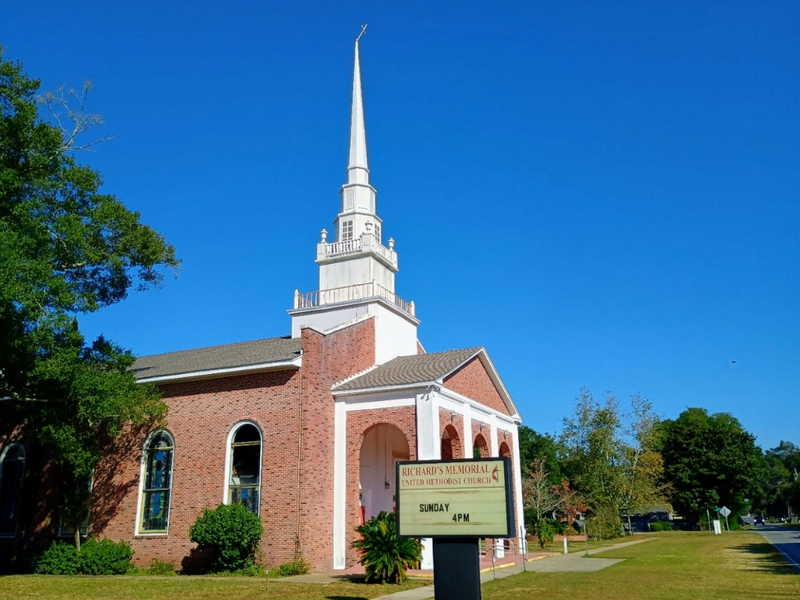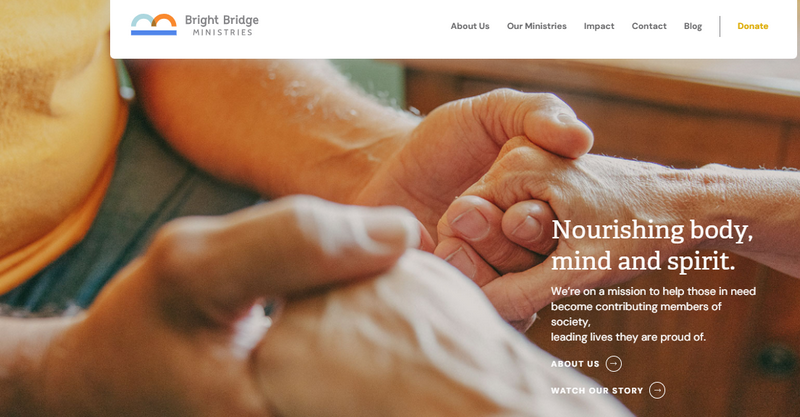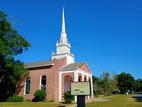Editor's note: The missional church movement emerged in the 1990s as churches in North America and Europe began to reflect on traditional church growth models. The trend has spread to Asia, including South Korea and Singapore. Theology researchers in China have paid attention to this trend and have been exploring how to apply it to the Chinese context. For example, Dr. Wu Dongri, who holds Ph.D. from Yonsei University, South Korea and a postdoctoral degree from Tsinghua University, has studied various church models over recent decades. Last year, he invited international scholars to discuss this trend. He recently recommended a series of articles by two friends who documented their firsthand experiences with missional churches in the U.S.
Below is the recommendation from Dr. Wu Dongri:
The Missional Church Movement is a global Christian movement that places God’s mission at the core of church identity and action. Rooted in the 1952 Willingen Conference concept of Missio Dei (God’s mission), this model not only emphasizes evangelism but also addresses social justice and even cooperation with social and governmental organizations to meet community needs. Advocating for the “priesthood of all believers,” it encourages members to live out their faith through service.
Yin Bobin, founder of Beijing’s Hope Garden, and his daughter, Li Huilin, recently participated in U.S. missional church activities and compiled a series of reflections on his experiences with missional church practices in the U.S. Yin has extensive experience supporting marginalized groups in Beijing.
I. Background Introduction
Bright Bridge Ministries is a faith-based organization established in 2007, originally founded as Pensacola United Methodist Community Ministries by United Methodist churches in Escambia County. This ministry is dedicated to offering comprehensive assistance to the homeless, impoverished, veterans, those with addictions, former inmates, and other vulnerable groups, helping them rebuild their lives, restore faith, and regain dignity through the love of Christ.
Supported by churches, Bright Bridge Ministries has continually expanded its services, covering areas such as housing, food supply, rehabilitation support, and life skills training. Founded on the love of Christ, Bright Bridge not only addresses the material needs of the community’s vulnerable members but also helps them find new hope and strength through faith as they embark on a new path in life.
II. Mission and Vision of the Ministry
Bright Bridge Ministries’ mission is rooted in the Christian doctrine of love and compassion, with a core objective of helping people regain their self-worth through respect and care. The ministry provides food, shelter, education, rehabilitation support, and faith guidance to the homeless and impoverished, helping them restore dignity and establish independent, stable lives.
At its core, Bright Bridge aims to ensure that everyone in the community can feel the love and grace of God. The church firmly believes that everyone, regardless of faith background or life hardship, deserves basic dignity and support. This sense of mission drives the Bright Bridge team to continually strive to help people move out of crisis and into more stable living conditions through substantial services.
In 2023, Bright Bridge Ministries experienced significant growth, achieving outstanding results particularly in food distribution, shelter services, and volunteer contributions. These services are not only intended to meet short-term material needs but also to offer sustainable, long-term solutions to help those they serve regain control of their lives.
III. Major Ministry Projects
1. His Place Transitional Housing Project
His Place is one of Bright Bridge Ministries’ core programs, focused on providing transitional housing and recovery programs for homeless men. This project goes beyond just providing a safe haven; it offers comprehensive support measures that help participants regain both physical and mental health.
Participants are required to stay drug- and alcohol-free during their stay and to participate in life skills training or rehabilitation programs. Bright Bridge assists them in saving money, offers employment opportunities, and provides educational training to help them eventually transition to independent living. The monthly budget for each participant is $400, which covers living expenses and other costs until they can afford to rent independently and secure stable employment.
In 2023, the His Place program provided 16,092 nights of shelter, helped 109 participants secure employment, and enabled 71 individuals to move into stable housing. His Place not only offers shelter but, through ongoing support and education, ensures participants can overcome hardship and return to a stable life trajectory.
Through this program, Bright Bridge demonstrates how a church ministry can go beyond traditional relief work, not only helping people through immediate crises but also providing long-term solutions. The success of this ministry is also due to its rigorous management and structured support systems, which ensure participants can gradually regain order and dignity in their lives within a safe and healthy environment.
2. Food Services and Community Support
Food service is another core mission of Bright Bridge Ministries. Every Monday through Friday (open year-round, 365 days), Bright Bridge offers hot, nutritious lunches to those in need within the community. Through this process, Bright Bridge’s staff and volunteers have the opportunity to engage deeply with those they serve, gaining insights into their other needs to provide more comprehensive support.
In 2023, Bright Bridge Ministries served a total of 49,038 meals, including 35,695 meals for daytime community services and 10,747 meals for residents. The food program at Bright Bridge not only addresses the basic dietary needs of individuals but also provides a safe, welcoming space where the homeless, who often face displacement, can find respect and rest. This service model cares for people’s physical needs and offers a foundation for spiritual recovery.
Bright Bridge closely collaborates with local churches, community organizations, and individual donors, sustaining this program through volunteer service and food donations. In 2023, Bright Bridge received $112,497.33 worth of food donations. This resource integration enables Bright Bridge to meet community needs while ensuring service sustainability.
3. Hygiene Supplies Distribution and Health Support
Bright Bridge Ministries' hygiene supplies distribution program provides monthly hygiene products to vulnerable community members, helping them maintain basic health and hygiene. This program was adjusted during the COVID-19 pandemic, with pre-packaged hygiene kits being distributed to ensure safe access to necessary supplies.
In 2023, Bright Bridge distributed 2,400 hygiene kits, which included shampoo, soap, shaving products, toothpaste, feminine hygiene products, and more, ensuring the health and safety of the homeless and impoverished in terms of basic living needs.
The importance of this program lies not only in helping people maintain health but also in enhancing their self-esteem and self-worth through small-scale support. Bright Bridge understands that hygiene and health form the foundation of every person’s dignity, and meeting these basic needs is the first step in helping people restore their lives.
4. Rehabilitation Support and Life Skills Training
Bright Bridge Ministries offers a range of rehabilitation and life skills training courses to the homeless, those with addictions, and the impoverished in the community. These courses not only help people cope with daily life challenges but also provide support for addiction and mental health issues.
Bright Bridge’s rehabilitation support includes multiple 12-step recovery groups, such as AA (Alcoholics Anonymous) and NA (Narcotics Anonymous). Additionally, the church hosts faith-centered recovery programs, such as "Choose Recovery" and "The Most Excellent Way," designed to help participants regain health and overcome addiction through the power of faith.
Furthermore, Bright Bridge has an in-house chapel where residents gather every Sunday evening after worship to enjoy dinners prepared by other UMC church members, creating opportunities for residents to build relationships within the faith community and support each other.
In 2023, Bright Bridge offered over 900 rehabilitation and life skills courses, averaging 17 to 20 classes per week. These classes cover financial management, employment guidance, healthy eating, addiction cessation, and more, helping participants improve their quality of life in a comprehensive way. These courses are open to the public for free, ensuring that anyone in need can access support.
5. Earn-a-Bike Program
The Earn-a-Bike Program is a unique initiative at Bright Bridge Ministries where participants can earn a bicycle by completing 20 hours of volunteer service. This program not only provides people with a means of transportation but also serves as a first step toward independent living.
For the homeless and low-income individuals, bicycles play an essential role, allowing them to find jobs more easily or reach recovery support groups and other crucial support networks faster. The Earn-a-Bike project provides a practical tool for people through simple volunteer service, helping them take an essential step forward in life.
IV. Volunteers and Community Engagement
Volunteers play an essential role in the work of Bright Bridge Ministries. In 2023, the organization received over 6,500 hours of volunteer service. These volunteers come from various backgrounds, including church members, community residents, and local businesses. They have made significant contributions to Bright Bridge’s mission through food provision, distribution of hygiene kits, participation in recovery groups, and more.
Volunteers not only provide the necessary human resources for Bright Bridge but also strengthen the connection between the community and church ministry through their involvement. Bright Bridge’s volunteer program offers community members a practical opportunity to embody Christian teachings by participating in the church’s service, experiencing the joy and satisfaction of helping others.
V. Relationship with the United Methodist Church
The founding of Bright Bridge Ministries was made possible by the support of the United Methodist Church. The church provided the initial funds and resources and has continued to provide substantial volunteer support and financial assistance throughout the ministry’s development. In 2023, the United Methodist Church continued to assist Bright Bridge in organizing food donations, launching recovery support programs, and offering spiritual guidance through its regional and community networks.
This close cooperative relationship reflects the role of the church as a bridge within the community. Through Bright Bridge Ministries, the United Methodist Church not only provides material assistance to vulnerable groups but also offers spiritual support, conveying the love and care of Christ. This service model, which combines material relief with spiritual guidance, gives Bright Bridge’s work a more profound impact.
VI. Community Impact and Achievements
The ministry of Bright Bridge Ministries not only directly assists the homeless and impoverished residents but also improves the well-being of the entire community through its broad influence. By providing basic needs and rehabilitation support, Bright Bridge helps people reintegrate into society, find stable living and work, which not only reduces the strain on public resources but also revitalizes the community.
In 2023 alone, Bright Bridge, through the His Place Transitional Housing Project, enabled many homeless people not only to find temporary shelter but also to gain stable employment and housing by participating in life skills courses and recovery groups. This project helped 71 people move into stable housing, and 109 people find jobs. This transformation has not only altered the life trajectories of these individuals but has also had a positive impact on the community’s overall economic and social stability.
In addition, Bright Bridge's food service program assists those in need by providing nutritious meals to help them overcome hunger and malnutrition. More than 1,850 individuals have received support through the food program, showcasing Bright Bridge's significant contributions to improving the basic living conditions of community members.
Bright Bridge's rehabilitation support and life skills training programs offer long-term solutions, helping participants overcome addiction, improve their quality of life, and reintegrate into society. Through more than 900 sessions and group meetings over the past year, Bright Bridge has helped people regain confidence and independence in their lives.
VII. Rebranding and Mission Renewal
The rebranding of Bright Bridge Ministries marks a milestone in its development. In 2019, the organization changed its name from Pensacola United Methodist Community Ministries to Bright Bridge Ministries. This change represents more than just a new name—it signifies an update in the organization’s mission, vision, and strategies.
With support from idgroup’s "Brand on Us" initiative, Bright Bridge Ministries adopted a new brand identity. The rebranding emphasizes the ministry's mission to build bridges to a brighter future for vulnerable individuals within the community. The new brand name and visual identity have enhanced the organization’s visibility, helping it better attract support from community members, volunteers, and donors.
Since the rebranding, Bright Bridge Ministries has remained focused on its core mission of offering dignity and care to all those in need through God’s love and grace. Whether through food services, transitional housing programs, or rehabilitation support and educational training, Bright Bridge continues to serve the community with a heightened sense of purpose and responsibility. This new brand image and strengthened mission orientation allow Bright Bridge to expand its reach and help even more people in the future.
VIII. Case Studies and Testimonials
Among the individuals served by Bright Bridge Ministries are many moving stories, demonstrating how the ministry’s practical efforts have transformed lives.
Case Study 1: John’s Story
John, a veteran facing homelessness due to multiple life challenges, had been living on the streets for years before discovering Bright Bridge Ministries' His Place transitional housing program. Through the program, he not only found a warm place to stay but also joined a support group that helped him overcome his addiction to alcohol.
With Bright Bridge's assistance, John regained confidence in life and learned financial management and job skills through life skills courses. Eventually, he secured stable employment and moved into his own apartment. John’s story highlights how Bright Bridge's comprehensive support helps individuals move beyond crises and reintegrate into society.
Case Study 2: Mary’s Story
Mary, a single mother struggling with financial instability and the pressures of life, often found it difficult to provide enough food for herself and her children. By chance, she learned about Bright Bridge's food service program and began regularly visiting Bright Bridge for meals. These meals helped her family through their toughest times.
Meanwhile, Bright Bridge’s team of volunteers also provided her with emotional support and job guidance, helping her secure a suitable job. Today, Mary is not only able to provide for her family but also volunteers in the community to give back to the organization that once helped her. Her story illustrates how Bright Bridge's services can impact entire families through compassion and action.
IX. Future Outlook and Challenges
Despite the significant achievements Bright Bridge Ministries has made over the past few years, it still faces several challenges moving forward. With the increasing numbers of homeless and impoverished individuals in the community, Bright Bridge needs to expand its service capacity to meet growing demands.
Additionally, as society recovers post-pandemic, Bright Bridge must adapt its service model. For example, the distribution of hygiene supplies and rehabilitation programs need to be more flexible to address potential future health crises. Meanwhile, with rising prices and resource scarcity, food and supply provision is becoming more challenging.
Nevertheless, Bright Bridge Ministries remains optimistic about the future. Through close partnerships with churches, community organizations, and donors, Bright Bridge plans to continue expanding its service range and explore more innovative programs, such as increasing job training opportunities and providing mental health support. The faith and mission of the church will continue to inspire the Bright Bridge team, ensuring they can offer lasting support to vulnerable groups.
X. Conclusion
Bright Bridge Ministries is a mission-driven church ministry that helps the homeless, impoverished residents, and other vulnerable groups achieve stability in their lives through comprehensive support services. Since its founding in 2007, Bright Bridge has remained centered on the love of Christ, providing material and spiritual support to those in need with respect, compassion, and care.
Through initiatives such as the His Place transitional housing program, food services, hygiene supply distribution, and rehabilitation support and life skills training, Bright Bridge consistently provides practical assistance to those in the community who need it most. Its success lies not only in helping many people through life’s crises but also in demonstrating the power of God’s love and grace in people’s lives through faith and service.
This missional church, Bright Bridge Ministries, will undoubtedly continue to be an essential force within the community, helping more people find a bridge to a brighter future.
Originally from the 'Christian Times'
CCD reprinted with permission













